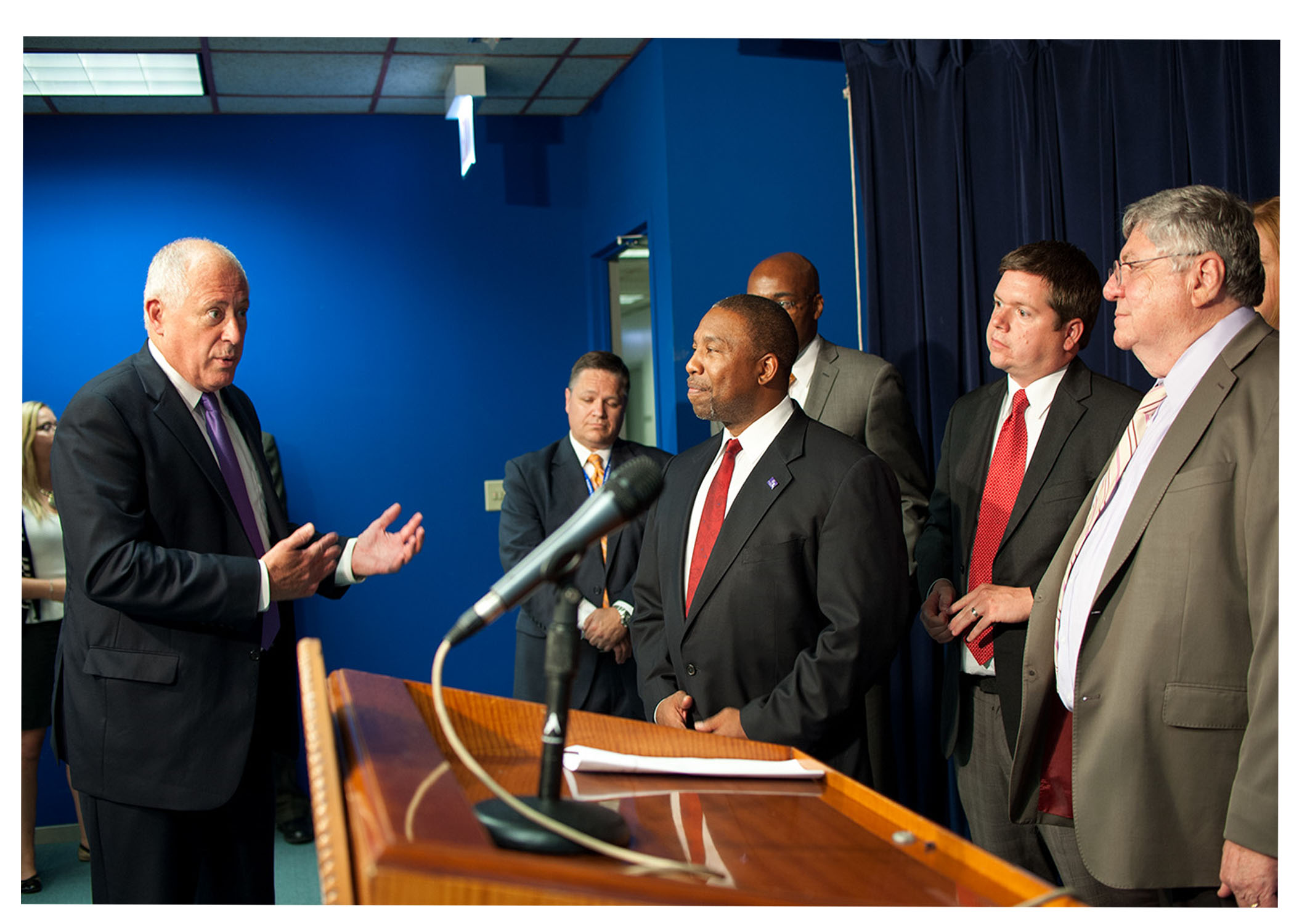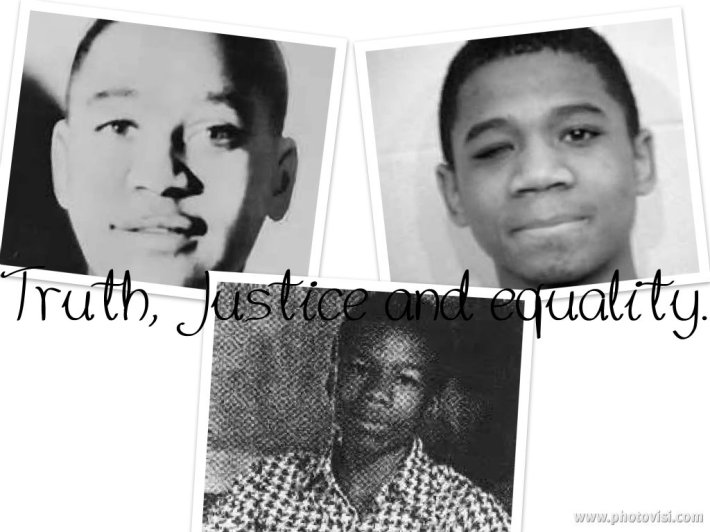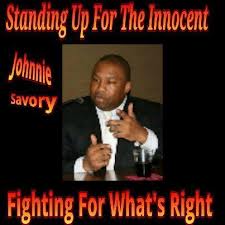by Dan Rodriguez
From the lawyers at CWC, whose work was critical in Mr. Savory’s exoneration:
Johnnie Lee Savory – Bridesmaid No More
Everyone in the Bluhm Legal Clinic and the national innocence
movement knows Johnnie Lee Savory. In 1977, at age 14, Johnnie was
arrested and charged with a double murder – of his friend and her sister
– and ultimately convicted and sent to prison for 50-75 years. While
in prison over the next 30 years, he wrote virtually every lawyer doing
in and outside of the country seeking assistance. In 2006, led by the
advocacy of Bluhm Legal Clinic Assistant Director Steve Drizin, Johnnie
was paroled. But even after his release seven years ago, Johnnie has
continued his legal fight.
Going on what is now almost four full decades, Johnnie has claimed –
adamantly and consistently – that his conviction was wrongful and he is
innocent of this crime. But more than anything, Johnnie has not just
proclaimed it – he has sought to establish it through the most reliable
means of proof available: DNA testing. When Illinois passed its DNA
statute almost fifteen years ago, Johnnie was the first in line to seek
testing. His case led to a broad interpretation of our DNA statute and
enabled hundreds of other wrongfully convicted defendants to get DNA
testing, many of whom have been exonerated.
Unfortunately for Johnnie, he won the war but lost the battle. The
Illinois Supreme Court held that the material he had sought to be tested
was not “materially relevant.” Since this defeat, he has tried to gain
access to DNA testing in every way imaginable. Prosecutors, state
circuit courts, state appellate courts, state supreme courts, federal
district courts, federal circuit courts, the prisoner review board, and
governors have all denied him this right. They have refused to allow him
access, at his own expense, to put the state’s physical evidence to
this most rigorous of testing.
When it comes to DNA testing, Johnnie’s always been the bridesmaid, but never been the bride.
When Johnnie was paroled in 2006, he immediately became part of our
family at the Bluhm Legal Clinic and the Center on Wrongful Convictions.
He has worked very closely with all of our exonerees and has helped
shepherd them through the process of getting their id’s and helped them
to reintegrate back into society. They have all learned from him and
benefitted from his counsel and kindness. He has attended celebration
after celebration when our exonerees have been released, events which
must have been bittersweet to him (but he has never shown such
bitterness).
Johnnie has also been a fixture at the national Innocence Network
Conferences for years. His story is all over the internet, on YOUTUBE,
and websites. At the Conference, Johnnie comes up on the stage when
exonerees are announced, even though he’s never been exonerated.
Exonerees, lawyers, advocates, and generally anyone involved in the
innocence movement come up and embrace him when they see him at the
Conference.
For as much as Johnnie has given to the Bluhm Legal Clinic and the
Innocence Movement, he has asked for only one thing in return – that we
make one more run at obtaining DNA testing for him from the Peoria
courts.
The Center on Wrongful Convictions of Youth took up Johnnie’s case in
2011 and began to reinvestigate the case in earnest throughout 2012 and
2013. Under the leadership of Assistant Clinical Professors Josh
Tepfer and Laura Nirider, and with the able assistance of many students
and private investigator Kevin McClain, we hit the streets of Peoria,
located witnesses, reinterviewed them, and tried to develop new evidence
of Johnnie’s innocence. Ultimately, McClain and recently-graduated
student Rebecca Stephens (’13) hit the jackpot when they flew to St.
Louis and located Ella Ivy, a woman whose testimony had buried Johnnie
at trial. Ivy testified that Johnnie had made inculpatory admissions to
her, statements that evidenced that Johnnie knew facts about the crime
that only the true killer could have known. She also claimed that during
these supposed conversations with Johnnie, a knife – which the State
theorized was the murder weapon – fell from his pants pocket. However,
when Stephens and McClain met with Ms. Ivy, she recanted much of her
trial testimony.
Our investigation also got a boost when a judge allowed us to view
the available physical evidence in the case in the presence of an expert
DNA analyst from LabCorp, a Texas-based DNA lab. This allowed us to
see that much of the evidence was available and had the scientific
capability of being tested.
Asking the court to revisit the question of DNA testing in this case involved some serious complications.
Since so many other courts and entities had denied the request, we
had to distinguish this request from others and the case precedent that
held that DNA testing in this matter would not be “materially relevant.”
To do so, for one, we made the request broader. Whereas previous
requests asked for two particular pieces of evidence to be tested, we
asked for testing on six pieces of evidence. Further, we explained that
where previous testing only had the ability to exclude Johnnie as the
source of certain pieces of DNA, the national CODIS database, which was
not previously in existence, now allowed the possibility of matching the
DNA to an alternative suspect. And we noted that since our request was
broader – the possibility of multiple pieces of evidence matching to the
same alternative perpetrator was real and significant. A variety of
other arguments were raised, all toward the point that the technology
has developed to the point where the identification of the perpetrator
of this crime could be established with more scientific certainty than
at previous times. Students, including Ilan Peress (’14), Kathryn
Shephard (’14), Stephens (’13), and Hannah Wendling (’13) took turns
drafting sections of our massive legal filing. Tepfer and Nirider put
all the pieces together. Amicus briefs were secured and constructed by
Northwestern law graduates Danny Greenfield (’08) from Sidley Austin
LLP, and Douglas Sanders (’98) of Baker & McKenzie.
On the day of the filing, we took a bus down to Peoria filled with
Savory’s supporters and held a rally outside the courthourse and a press
conference therein, all organized by Bluhm clinic staff members
Christine Agaiby, Delores Kennedy, and others. Here is a clip from a
rally and press conference:
http://www.pjstar.com/video/x719493239/Johnny-Lee-Savory-wants-DNA-testing-to-prove-his-innocence.
Over the next six month, many more pleadings were filed in response
to the State’s objection to our request for testing. Among the most
powerful was a reply to the State’s
res judicata argument (i.e.,
the court should not revisit the same requests that all these other
courts have previously denied). The arguments on this point were
researched and crafted primarily by Shephard (’14).
In March, we returned in the Spring to argue the
motion. Third-year-law students, Stephens and Wendling, took the lead
and squared off against the seasoned head of the Peoria County State’s
Attorney’s Office – Jerry Brady, as well as his assistant. Assistant
Professor Tepfer delivered a powerful rebuttal. And then we waited, but
not on our hands. Led again by Wendling (’13), we filed more pleadings,
this time a supplemental memorandum of law addressing concerns raised by
Peoria County Judge Stephen Kouri during argument.
And then we waited, and waited, and waited.
Until yesterday, the birthday of Johnnie’s long-time advocate Steve
Drizin. The opinion allowed our motion in full – granting Johnnie the
DNA testing he has long sought. It’s a marvelous opinion by Judge
Stephen Kouri that subtly pays tribute to the many individuals who have
long fought for this testing. It notes that Johnnie, both pro se and
through counsel and at times “with the support of some of the most
prestigious law firms and renowned attorneys in the country,” has
“exhausted virtually every remotely possible legal remedy and recourse
available.” The opinion relies greatly on the Ivy affidavit obtained by
Stephens (’13), adopts the legal arguments on the issue of
res judicata researched
and constructed by Shephard (’14), and notes much of the research put
forth by Wendling (’13) in the supplemental memorandum of law. In short,
the beautifully-crafted legal and factual analysis has the thumbprints
of Northwestern law students all over it.
But the best part of it all is that a small step towards justice for
Johnnie Lee Savory – 36 years in the making – was finally taken
yesterday. Johnnie Lee Savory is a bridesmaid no more.
Judge Kouri’s decision is attached and a a link to a news report is provided —
http://www.pjstar.com/news/x853699644/Judge-rules-Johnnie-Lee-Savory-can-use-DNA-tests-on-old-evidence
http://deansblog.law.northwestern.edu/2013/08/08/more-on-the-johnnie-lee-savory-case/









